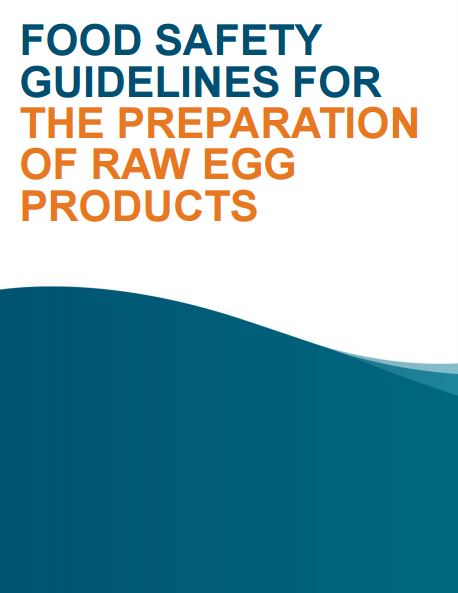
The NSW Food Authority has released an updated version of the food safety guideline for the preparation of raw egg products.
The NSW Food Authority has developed these guidelines to assist businesses to undertake practices that will ensure that they comply with requirements when making products known to cause salmonellosis.
The guidelines advise businesses to use safe alternatives to raw eggs in foods which are not cooked. Alternatives include commercially produced dressings and sauces, or pasteurised egg products.
Should businesses choose to use raw eggs in products, the guidelines advise suitable control steps for foods and menu items containing raw egg, known to cause cases of salmonellosis, that:
-The raw egg product is to be acidified to a pH of 4.2 (or less) or effectively heat treated (giving businesses instructions on how to achieve this)
-The treated raw egg product should be stored at or below 5˚C for no longer than 24 hours.
Download this guideline at NSW Food Authority
The NSW Food Authority has developed these guidelines to assist businesses to undertake practices that will ensure that they comply with requirements when making products known to cause salmonellosis.
The guidelines advise businesses to use safe alternatives to raw eggs in foods which are not cooked. Alternatives include commercially produced dressings and sauces, or pasteurised egg products.
Should businesses choose to use raw eggs in products, the guidelines advise suitable control steps for foods and menu items containing raw egg, known to cause cases of salmonellosis, that:
-The raw egg product is to be acidified to a pH of 4.2 (or less) or effectively heat treated (giving businesses instructions on how to achieve this)
-The treated raw egg product should be stored at or below 5˚C for no longer than 24 hours.
Download this guideline at NSW Food Authority
 RSS Feed
RSS Feed
